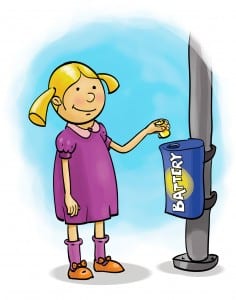What Every Student Should Know About the Environment
There are scores of possible models of environmental education programs, and most have many of the following large concepts in common. As students go from kindergarten through high school, they can work their way down the list.
- Earth overflows with life.
One of science’s biggest mysteries is how many species share this planet— estimates range from 5 million to 100 million species. Many environmental education programs begin with the premise that life is vanishing; young learners should first know that Earth teems with a huge number of creatures. - Each creature is uniquely adapted to its environment.
Every species evolved to possess a unique set of adaptations that enables it to survive and thrive in its ecosystem. Students should be on a first-name basis with many local creatures. - The web of life is interdependent.
Organisms evolve complex relationships, each depending on numerous other species for their survival. - Materials flow through ecosystems in cycles.
All creatures need water, air, and nutrients to survive. These materials cycle and recycle through ecosystems. The water we drink today is the same water we’ve always had, and always will. - The sun is the ultimate source of energy flowing through ecosystems.
Food grows from sunlight energy; our houses are heated by fossil fuels created many millennia ago from ancient sunlight. - There is no waste in nature; everything is recycled.
In nature, every waste product is used by other creatures. Humans have bent those circles into straight lines, where things are used once and tossed. - We consume resources to live.
Every student should know where the trash truck takes the trash, where water comes from, and how the nearest power plant makes electricity. - Conservation is the wise use of finite resources.
We are physical creatures with real needs—to eat, drink, build houses, write on paper. But how do we use these resources sustainably? - Humans can have a profound effect on environmental systems.
Fossil fuels pump carbon dioxide into the sky; habitat loss is causing the extinction of large numbers of species. Our actions profoundly affect the ecological systems that sustain living things—and us. Nature can often repair these systems (forests grow back, for example); but humans are changing systems faster than nature can adapt. - Each of us can powerfully affect the fate of the natural world.
Because each of us is directly plugged into the planet, the actions we take—or fail to take—profoundly influence earth’s systems.
For more information:
- For more on Mike Weilbacher, check out Mike Weilbacher’s website and his beautiful Natural Selections blog.
– Mike Weilbacher


